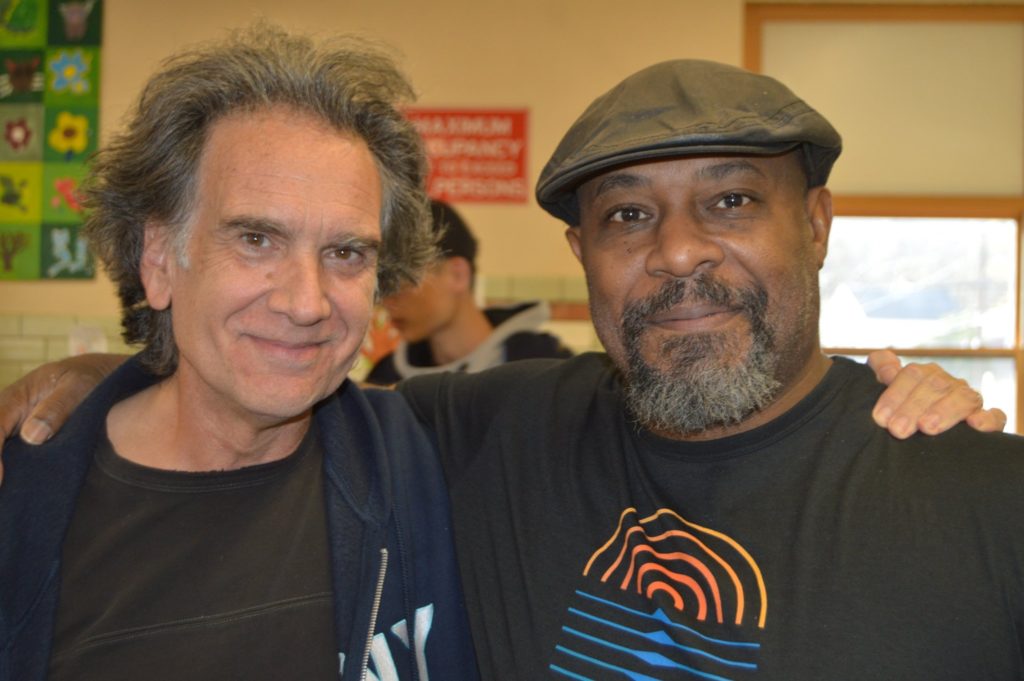The Jackson, Mississippi water crisis made headlines this week. Decades of crumbling, neglected infrastructure came to a head, leaving residents of the capitol city waiting in long lines for bottled water. You might see a “grassroots” leftist group “on the ground” using this opportunity to raise their profile, calling for mutual aid and donations. Leaving out key details, this group has a very specific narrative and agenda to promote; an agenda which works to undermine solutions to the water crisis in the name of decentralization and degrowth.
On Monday, co-founder and leader of Cooperation Jackson, Kali Akuno released a widely-circulated statement, “After decades of systematic and intentional neglect due to environmental racism, capital flight and deindustrialization, the city’s water system has collapsed.”
Let’s put aside the fact that “environmental racism” is a term baked up in the brains of liberals to distract from economic and class issues. According to Akuno’s main contention, that the water system has collapsed due to deindustrialization and capital flight, we would assume that this veteran social justice warrior has been fighting to stop this economic drain for years. But a statement put out by Akuno in 2016 tells the opposite tale. In a post titled Countering the Confederate ‘Spring’: the Assault on Black Political Power in Jackson, MS Akuno outlines tensions between the majority black, Democrat city of Jackson and the majority white, Republican state of Mississippi.
Since Jackson became a majority Black city in the 1980’s, it has struggled to figure out how to overhaul the city’s crumbling infrastructure with the limited revenues it possessed as a direct result of a declining tax base, which largely evaporated as result of white flight and all of the capital transferred with their relocation to the suburbs.
The creation of a regional water treatment facility has been on the table for years, but Akuno is convinced that it is a “white settler” Republican conspiracy to seize control of the Jackson’s “municipal authority and economic viability” turning it into an “extractive colony” for the surrounding suburbs. Akuno’s solution is a “Boycott, Divest and Sanction” campaign to “punish the moneyed interests” in the surrounding counties. Rather than create a regional water system, pooling the resources and combining the economic destiny of the majority black city with the majority white suburbs, Akuno demands these regions remain separate, even if it means precarity of the water system for Jackson residents.
Six years later, the water system has reached a crisis point requiring federal intervention, but Akuno is still singing the same tune. From a Politico article published on Saturday:
Republican leaders have pitched plans to create regional rather than municipal water systems as a way to pool revenues from across the state. Supporters contend doing so would generate money to repair Jackson’s system since its current tax base cannot raise the funding.
But Akuno said that would cost Jackson autonomy over its utilities, instead leaving management and oversight to state-appointed boards under some proposals being discussed.
“The subtext to that is ‘Black people don’t know how to manage it,’” Akuno said.
Politico
Akuno has laid the groundwork for the collapse of their water system by refusing to work with Republicans based on the idea that they are all racist white settlers (he doesn’t seem to have the same problem with white Democrats, apparently).
As a counter balance to the Boycott, Divest and Sanction initiative against the “white settler” Republican suburbs, Akuno proposes a Buy Jackson! Initiative to “revitalize the commercial and retail base.” But in order for these economic drivers to be “oriented towards community wealth building that are cooperatively owned and developed” they must follow the “Solidarity Economy” model.
What is the Solidarity Economy?
In short, the Solidarity Economy is an international movement in support of the post-growth economy. It’s an umbrella term for political theories like mutual aid, localism, Just Transition, regenerative economics, degrowth, etc. At its core, it’s about decentralization, and more importantly, the ideology of E.F. Schumacher’s Small is Beautiful—containing growth at all costs. Keeping humanity’s impact on the world as small as possible. Akuno’s hyper-racialized convictions are the perfect justification for holding back the regionalization of Jackson’s water system, in favor of keeping it small and “under control.”
Akuno sits on the board of the E.F. Schumacher Center for New Economics. He also works as Racial and Environmental Justice Coordinator for the Institute for Social Ecology which was founded by eco-anarchist Murry Bookchin.
In 1968 [Bookchin] founded [a] group that published the influential Anarchos magazine, which published… innovative essays on post-scarcity and on ecological technologies like solar and wind energy, and on decentralization and miniaturization.
Environment and Ecology
In a 2019 article titled The Reason Renewables Can’t Power Modern Civilization Is Because They Were Never Meant To Michael Shellenberger explains how decentalization became a Trojan horse for Murray Bookchin’s anti-human tendencies:
In the US, Heidegger’s views were picked up by renewable energy advocates. Barry Commoner in 1969 argued that a transition to renewables was needed to bring modern civilization “into harmony with the ecosphere.”
The goal of renewables was to turn modern industrial societies back into agrarian ones, argued Murray Bookchin in his 1962 book, Our Synthetic Environment.
Bookchin admitted his proposal “conjures up an image of cultural isolation and social stagnation, of a journey backward in history to the agrarian societies of the medieval and ancient worlds.”
With this history in mind, the idea of existing infrastructure crumbling begins to sound like it’s part of a larger plan to be in “right relation” with the earth. For the Malthusian ruling class this means having less people. Less people with less power, working harder just to survive.
Andreas Malm advocates for “intelligent sabotage” of fossil-fuel infrastructure to prevent more carbon from being emitted. “I am in favor of destroying machines, property—not harming people. That’s a very important distinction,” he tells Remnick.
The New Yorker

Is Cooperation Jackson doing “intelligent sabotage” of the water system? Cooperation Jackson openly calls for degrowth. And degrowth is deindustrialization, specifically by reducing economic growth. But, as we recall from the beginning, Akuno tags “deindustrialization” as a cause of the water crisis.
The reality is that the animating forces behind Akuno, Cooperation Jackson and the Small is Beautiful ideology want to degrow the economy and reduce the human population in order to save “Gaia” or “Mother Earth”. They believe the human race is a virus on the planet, not a precious miracle. They do not believe in the sanctity of life. And when you don’t believe in the sanctity of human life, it does not matter if your water system collapses.
As we saw with Sri Lanka, none of the degrowth activists showed any remorse or regret for their proposals and policies resulting in collapse of the food system.







